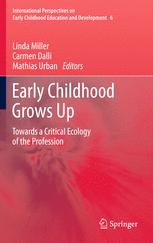

Most ebook files are in PDF format, so you can easily read them using various software such as Foxit Reader or directly on the Google Chrome browser.
Some ebook files are released by publishers in other formats such as .awz, .mobi, .epub, .fb2, etc. You may need to install specific software to read these formats on mobile/PC, such as Calibre.
Please read the tutorial at this link: https://ebookbell.com/faq
We offer FREE conversion to the popular formats you request; however, this may take some time. Therefore, right after payment, please email us, and we will try to provide the service as quickly as possible.
For some exceptional file formats or broken links (if any), please refrain from opening any disputes. Instead, email us first, and we will try to assist within a maximum of 6 hours.
EbookBell Team

0.0
0 reviewsOnce the Cinderella of the education system, early years education has evolved into a much more substantially funded sector with staff experiencing greater opportunities for higher-level training and education as well as increasing demands. This book reflects practitioner debates about fundamental questions such as whether or not their field of work is a profession at all. Two key arguments are presented. The first is that early years education has matured to the point that pedagogical and regulatory frameworks have been introduced and linked to a terminology of professionalism. This has opened up a space for early years practitioners – as insiders of this historically undervalued sector – to question the nature of their practice. The questioning leads to the second argument: the need for a new future for early years education marked by a ‘critical ecology’ of the profession. This is a future in which educators maintain an attitude of critical enquiry in all aspects of their role, assessing the genuine needs of the sector, factoring in the different political and cultural milieux that influence it, and acting to transform it.
In exploring the issues, this book begins by recording in detail the daily work of early years educators from six countries: Australia, England, Finland, Germany, New Zealand and Sweden. These case studies explore what it means to act professionally in a particular context; perceptions of what being a ‘professional’ in early childhood education means (including practitioners’ self perceptions and external perspectives); and common features of practice in each context. It moves on to analyse the wider socio-political forces that affect this day-to-day practice and recommends that practitioners act as transformative agents informed by the political and social realities of their time.